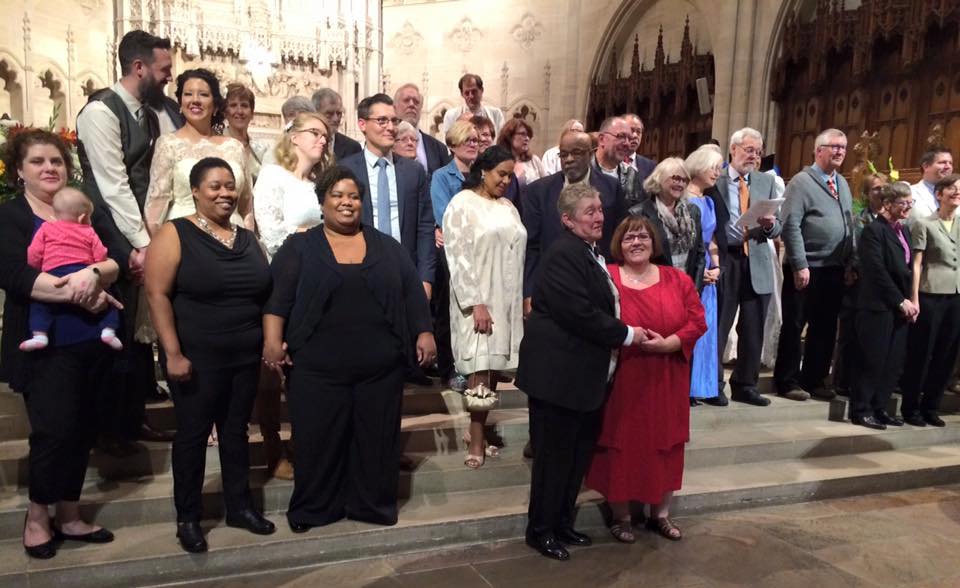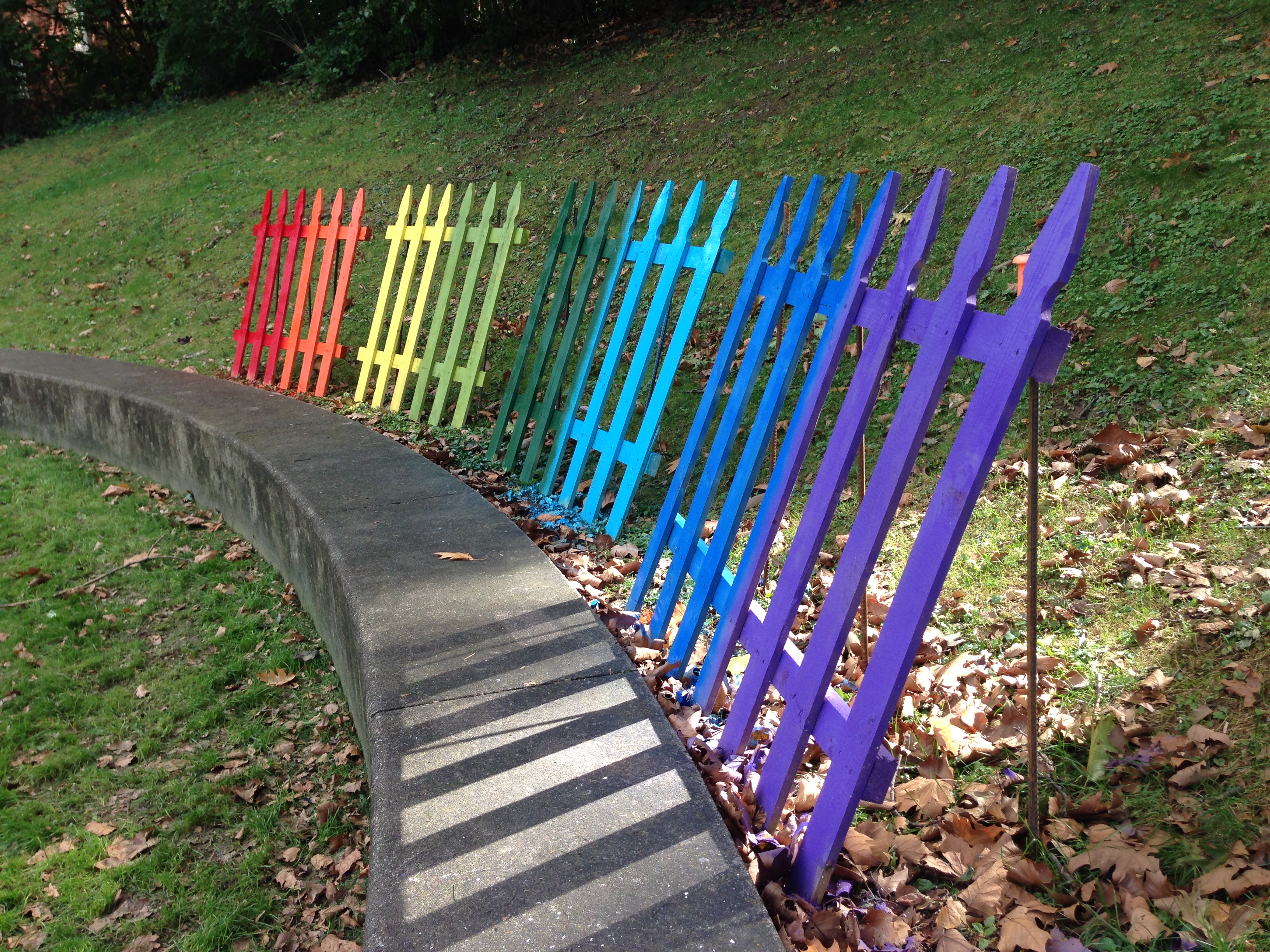In San Francisco during 1978, Gilbert Baker hand-dyed and sewed the colorful flag that is now a symbol of pride for the Lesbian, Gay, Bisexual, Transgender, Queer and Questioning, Intersex, and Asexual/Ally community, also known as LGBTQIA.
Now, over 35 years later, Chatham students, faculty, and staff are able to walk through the Main Quad to see 12 rows of colorful paper bags—two rows per pride color—representing the flag that celebrates the LGBTQIA community.
Laced with Christmas lights, the bags—vibrant with color by day—turn into a glowing symbol of pride by night to celebrate LGBTQIA Awareness Month.
“It’s a colorful representation of the fight for equality. It took a lot of work to put up, maybe five or six hours in the rain,” sophomore Alice Shy said about the installment. “There were RAs, Residence Life staff, and Student Affairs staff participating. I had to go.”
“I helped put it together. Lots of work went into it. The flag glows and each color stands for something different,” senior Cat Giles said.
The original flag had eight stripes of color but was reduced to the six colors that have been common since 1979. Though it is believed that the flag is just the rainbow, the colors actually have meaning. In horizontal descending order are red meaning life, orange meaning healing, yellow meaning sunlight, green meaning nature, blue meaning serenity, and violet meaning spirit.
“It’s the coolest thing ever. I feel like every student should see it, especially at night,” said first-year Asia Williams.
When asked about the LGBTQIA community in general, sophomore Lauren Brown was excited to address how the topic related to her.
“I’m hyped about the LGBT and the black community. Coming from an African American standpoint, this whole movement was adopted from the Civil Rights Movement so we should support them. It’s a nice thing they are doing,” she said.
Brown also recommended the TED talk, “50 Shades of Gay,” with iO Tillett Wright to anyone who wants to get more insight on the movement.
The positive feedback wasn’t unanimous, however.
“I think it’s nice for representation but I don’t really have an opinion.” sophomore Tiffany Schmitt said.
“I don’t have any strong feelings but it’s pretty and it looks nice,” first-year Imani Constant said.
That didn’t stop the optimism, however. In a group of eleven first-years, there was nothing but positive feedback.
“I think it’s wonderful,” said Alex Waasdorp, the president of the Class of 2018.
“Yeah, it’s pretty awesome,” said first-year Maura Cray-ton said. “This month is important to me because I am one.”
Another first-year, Kara Doss, also closely identified with the issue.
“This month recognizes all people who have been harassed and killed for centuries so we can all be accepted. Who even started saying that being gay was wrong? Even Abraham Lincoln had a male lover,” said Doss.
“Awareness is acceptance,” first-year Pearl McCann said.
Chatham University proves to be an environment that supports people from all walks of life, as Residence Assistant Emma Marik was proud to point out.
“I think its awesome, and it adds to Chatham’s diversity and the spirit of loving everyone,” she said.
Chatham’s kick off of the LGBTQIA Awareness Month was a success with only one grievance from Cat Giles, one unrelated to the cause itself.
“I don’t like that it uses energy. There are Christmas lights used for the glow. As a school for sustainability, I think we could have found another way,” said Giles. “But I like the cause. I think this month is a great opportunity to learn more about the LGBTQIA communities’ struggles and achievements. It’s a good thing.”


